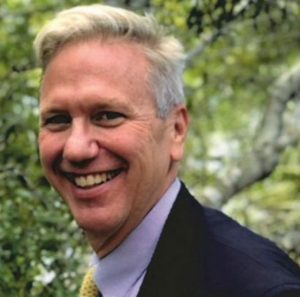By Maurice Stouse, Financial Advisor and Branch Manager

Keith Knight spent over 50 years in the investment and financial services business before retiring to the Emerald Coast of Florida. During his years advising clients and consistently across the beach towns, you could hear his often-repeated refrain: “Money never sleeps.”
Following on to this, we are pondering what drives building and maintaining wealth in this life as well as building and maintaining health in this life. The Declaration of Independence speaks to the rights of life, liberty and the pursuit of happiness. To that end, what or how does someone make that happen? Morgan Housel in his book “The Psychology of Money” wrote that a key driver to wealth in this world is not necessarily knowledge or education. It is trumped by behavior. Yes, behavior.
Identifying objectives, risk tolerances and time frame help form the plan for building wealth. The same can be said for health (which makes up about 18% of the U.S. economy or gross domestic product). Health care spending topped $4.2 trillion in 2022, according to data from Statista. While knowing the answers to the big three are important, the results to our health and wealth are driven by our behaviors. Housel writes that people should save out of pessimism, but invest out of optimism. He notes that optimism must be realistic. In other words, the eternal optimist is probably more complacent than optimistic. The compound effect, per Housel and countless others, is a result of behaviors of consistency, patience and determination. It takes time and consistency to build assets, and the compound effect can illustrate that.
Behaviors can also work against us. Sometimes in investing, people are driven to chase returns of a stock or a fund or some other asset. And many times, we might hear what has worked so well for someone (think a particular stock), the resulting behavior is motivated by FOMO: Fear of Missing Out. The problem with chasing returns and acting on limited input (a friend’s experience or something overhead at a cocktail party) is that we always hear about the incredible successes but how often do we hear about the incredible failures? We have all heard it before: Past performance is no indication or guarantee of future performance. No one can time the market, or can they? Many will say that they have and that they can. Sooner or later, what goes around comes around. Someone who might have been correct before might not repeat again for a while. We believe that behavior trails persistence, patience and, ultimately, the compound effect.
What about living off our investments (now or in retirement)? We believe that investors should focus on maintaining principal and living off income produced (stocks, bonds, real estate, CDs or money markets) vs. the gradual selling of principal to maintain income. That might mean sacrificing some appreciation in up markets, but it also means not selling principal in down markets. It is a concept known as the sequence of returns. Put another way, don’t cut the branches of the trees that are producing the fruits or vegetables. That is behavior driven.
Think about the compound effect in weight loss, weight gain, muscle loss or muscle gain. Nothing happens quickly and there is no proven way or shortcuts to success. We think investors can and should contemplate that behavior can drive desired outcomes in life, liberty and the pursuit of happiness.
What about saving and investing behaviors? Housel also speaks to the 50/30/20 rule: Spend 50% of income on what it takes to run your life and household. 30% on what you enjoy and 20% on saving. That saving we think includes your retirement savings. And take a cue from what behaviors it takes to get out of debt, should you find yourself in debt: You need to drive income up and or expenses down. A key behavior is to work toward growing your income faster than your outgo. That takes behavior vs. education, knowledge or skill.
What about time? Warren Buffet has been quoted repeatedly about how time is something that cannot be created or gotten back. Time (unlike energy), once used, is gone. The behavior of how we spend our time will (via the compound effect) produce a given result. If we spend our time studying nutrition, exercising and eating right, that, over time, could lead to a healthy state. Same for wealth. Energy is interesting in that we hear that energy cannot be created or destroyed, only transformed from one form to another. So, if we put our energy into reading, researching, saving, exercising, eating right, getting enough sleep, drinking enough water, investing, applying and investing our time, what might the results be for health and wealth?
Maurice Stouse is a Financial Advisor and the branch manager of The First Wealth Management/ Raymond James. Main office is located at The First Bank, 2000 98 Palms Blvd., Destin, 32451; 850.654.8124. Raymond James advisors do not offer tax advice. Please see your tax professionals. Email: Maurice.stouse@raymondjames.com.
Securities offered through Raymond James Financial Services, Inc., Member FINRA/SIPC, and are not insured by bank insurance, the FDIC or any other government agency, are not deposits or obligations of the bank, are not guaranteed by the bank, and are subject to risks, including the possible loss of principal. Investment Advisory Services are offered through Raymond James Financial Services Advisors, Inc. The First Wealth Management and The First Bank are not registered broker/dealers and are independent of Raymond James Financial Services.
Views expressed are the current opinion of the author and are subject to change without notice. The information provided is general in nature and is not a complete statement of all information necessary for making an investment decision and is not a recommendation or a solicitation to buy or sell any security. Past performance is not indicative of future results.
Visits: 0

















































